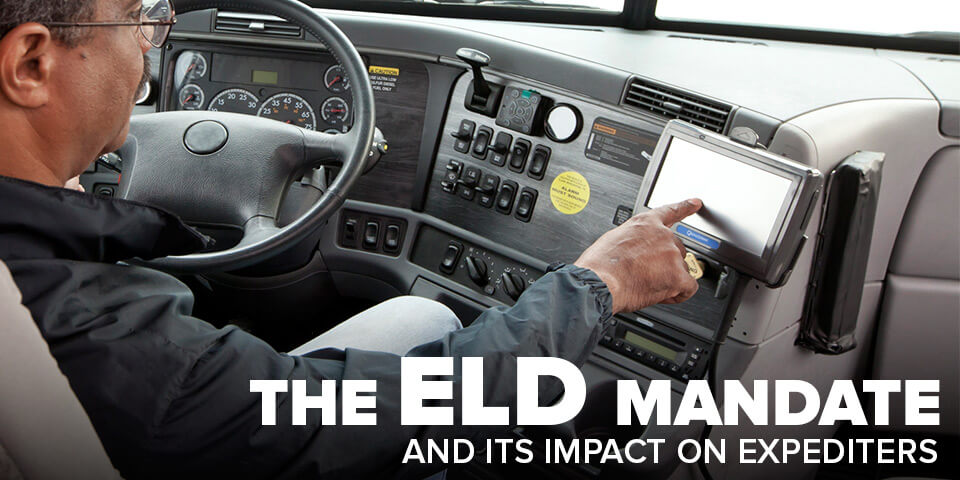Success in Expediting: Part 2 -- Three Opportunities for Expediters to Win in Today's Freight Market
Editor's Note: Perhaps you're considering expedited trucking as a new business opportunity where you can break free from the office, travel the country, and take on new and interesting work with each trip. Or, you're a veteran expediter looking for new ideas and advice to help you not only survive but thrive in today's market.
Whether you're just starting out or have been in this business for many years, one thing's for sure: knowledge is power. That's why at ExpeditersOnline...
Owner Operator or Fleet Driver: Which is Right for You?
If you're considering expedited trucking, perhaps you're looking to find an interesting 'post-retirement' career, start a venture that you can do with your spouse, or travel the country while getting paid to do it. Whatever your goal, you're likely asking the question - should I become an owner-operator or start as a driver employed by a fleet owner?ExpediteNow recently spoke with John Elliott, chief executive officer for Load One LLC, an expedited trucking carrier headquarte...
Expedite Expo 2016 Update: New Venue and More Value
If you want to learn how to grow your business, make valuable connections, and discover new products and services in the expedited trucking industry, then register to attend the Expedite Expo on July 15 and 16 at the Lexington Center in Lexington, Ky.
Since 2001, Expedite Expo has been the only trade event focused exclusively on the expedited trucking industry. And in recent years, the show has grown tremendously.
"Pre-registration is almost double what is was last year at th...
Your Engine has Blown: What Now?
It's an owner-operator's nightmare. You're an expediter, whose objective is to get time-sensitive freight to the customer as quickly and safely possible. But the one tool you need up and running so you can make a living for your family is broken down on the side of the road. And it gets worse. Your engine has blown. So, what should you do?
EO spoke with John Lalonde, expediter sales representative for Fyda Freightliner in Columbus, Ohio, to get his advice.
EO: What is the typ...
Part 2: Why I Chose a Straight Truck for Expediting
This is the second installment of a three-part series to introduce you to each type of vehicle typically used for expediting. The first article covered "Why I Chose a Tractor" and the third article will address "Why I Chose a Cargo Van."
Tom and Tina Evans are fleet owners with TNT Expedited Services Inc. and owner-operators leased to Load One Transportation & Logistics. They started in expediting with a straight truck in 2001 and currently drive a 2005 Freightliner Busin...
The ELD Mandate and Its Impact on Expediters
In December, the U.S. Department of Transportation's Federal Motor Carrier Safety Administration (FMCSA) announced the adoption of a Final Rule requiring commercial truck drivers to use to use electronic logging devices (ELD), which automatically record driving time and monitor engine hours, vehicle movement, miles driven, and location.
The ELD mandate requires drivers and carriers who currently use paper log books to maintain hours-of-service records to adopt ELDs by Decembe...
Truck Cameras: Friend or Foe?
Are truck cameras your friend or foe?
The answer depends on the point of view of the stakeholder ... and that of the camera, whether it's facing the road, or back at the driver, or both.
If you're a fleet owner or in charge of safety for a motor carrier, then you're inclined to want the most comprehensive system possible -- with forward-facing cameras that capture events happening in front of the vehicle and driver-facing cameras that track the movements of drivers -- to prot...
Part 1: Why I Chose a Tractor for Expediting
This is the first installment of a three-part series to introduce you to each type of vehicle typically used for expediting. The next two articles in the series will address "Why I Chose a Straight Truck" and "Why I Chose a Cargo Van."
You see a lot of folks who get their start in expedited trucking with a smaller vehicle, such as a straight truck or cargo van. But not veteran expediters and fleet owners Daina and Norm St. Onge, who run the Knoxville, Tennessee-based Direct ...
The Risks and Rewards of Getting Your Own Motor Carrier Authority
When you operate under your own motor carrier authority, you get to call your own shots and keep more of your income by negotiating rates directly with customers and not having to share a cut of your revenue with a carrier.
But all the support that a carrier supplies -- such as sales and marketing, dispatch, and other important business services -- you'll have to handle on your own. And while the rewards of getting your own authority can be attractive, the risks are high.
Wha...
Getting Health Insurance as an Expedite Owner-Operator
The Affordable Care Act -- also known as "Obamacare" -- has been a political lightning rod since it was passed into law in 2010. But for trucking owner-operators, the ACA may actually be making health insurance more "affordable." At least that has been the case for veteran expediters Linda and Bob Caffee.
When they received notice that the health insurance company they had been with for about 10 years was going out of business, the Caffees explored other options. They started...










